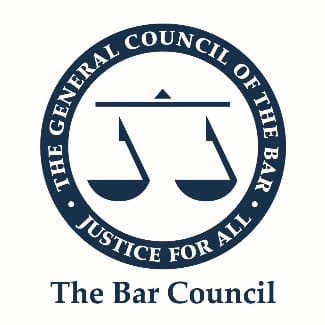Y v Z [2024] EWFC 4
Judgment date: 16 January 2024
https://www.bailii.org/ew/cases/EWFC/HCJ/2024/4.html
Peel J’s determination of M’s Schedule 1 application against F, who is a member of a Middle Eastern royal family.
M’s application for financial provision under Schedule 1 of the Children Act 1989 concerned two children, aged 4 and 2. M, aged 40, was a professional equestrian but stopped competing before the first child was born. She had not worked since and suffers from PTSD from a previous relationship, depression and anxiety. F, aged 36, is a member of a Middle Eastern royal family, being the cousin of the current ruler, but was not active in royal duties. He owns companies with his brothers linked to horses.
The parties met in 2017 at an equestrian event in the US. They took part in a Nikah ceremony in London in 2018, which Peel J confirmed had not created a valid marriage. The children were born in 2019 and 2021 and the parties separated in 2021. Previous children proceedings resulted in agreement that M would be sole carer and relocate to US.
M’s application under Schedule 1 was filed in November 2022. Peel J remarked at how M’s case was ‘overstated’ from the outset. She first sought maintenance of $1.9m pa per child and a housing fund of $7m. These figures were reduced during the proceedings via open offers and, by the time of trial, she sought, inter alia, $780,000 pa per child (not including additional equestrian costs) and $5.5m for a housing fund (despite the current home, owned by F, being valued at £2.3m to £2.4m). F, unsurprisingly, offered less at a total of $480,000 per annum ($240,000 pa per child), and $4m for housing.
Peel J summarised the applicable law and approach to Schedule 1 at paragraph 35 of his judgment and the key orders usually made in such an application, namely:
- Settlement of property, usually involving a trust, licence or lease arrangement;
- Lump sum(s) for capital needs; and
- Child maintenance, which may or may not be secured, for income needs.
Held
Peel J ordered:
- $5m for housing with M residing under an irrevocable lease until the children finish their tertiary education.
- $600,000 lump sum for various capital needs.
- $100,000 for M to purchase a car and $50,000 for the nanny’s car every five years.
- $250,000 pa per child to be index linked in the US, likely to be CPI.
- F to pay school fees and books on the school bill with M to pay any extras from her maintenance provision.
- Up to $12,000 pa for F to pay for the children’s Arabic tuition directly.
- F to obtain life insurance in the sum of $15m and to deposit $250,000 for M to access for legal fees if he defaults.
- M’s capital claim for the purchase and maintenance of horses for the children and her application for security to be adjourned.
Of note, Peel J rejected M’s claim for backdated maintenance and pointed out that she had received interim provision and was not destitute.
Millionaire’s defence
Peel J differentiated the case from HRH Haya bint al Hussein v HH Mohammed bin Rasjid Al Maktoum [2022] 2 FLR 1185 and highlighted the ‘unique’ factual matrix of that case. At paragraph 29, he emphasised that even where a party asserts a millionaire’s defence, some disclosure is usually still required to:
- assist the claimant’s and court’s understanding as well as ensuring the court adheres to the statutory requirement to consider various factors at paragraph 4 of Schedule 1 (or s 25(2) of the Matrimonial Causes Act 1973);
- consider the enforceability of any award and its structure; and
- assess the reasonableness of the claimant’s budget.
In this case, Peel J had ordered F to file a Form E (not Form E1, as is standard in Schedule 1 cases) without supporting documentary evidence but with a narrative statement by F of his trust and business interests.
Budgets
Peel J was critical of M and referred to her exaggerating the parties’ standard of living and her and the children’s needs on multiple occasions within his judgment. He described her budget as a ‘wish list’ and remarked on how many of the items were examples of ‘crossing the line’ of what is a reasonable income need for the children’s carer and an unreasonable figure for herself. The children’s very young age and lack of exposure to the high standard of living asserted by M (they notably did not go on holiday with M or F save for two trips) supported Peel J’s view that such a level did not need to be replicated in the maintenance provision he ordered. His critique and assessment is reflected in his ultimate order for $250,000 pa per child, close to F’s open offer ($240,000 pa per child) and only 32% of the reduced amount M sought at trial.
Security
F’s evidence that he would abide by the final order was accepted by Peel J. He had fully complied with all interim orders, save on one occasion. Notwithstanding this, Peel J did order two forms of security by way of life insurance at $15m and $250,000 to be paid into an account for M to access to meet her legal fees for enforcement proceedings if F breaches the order and defaults.





